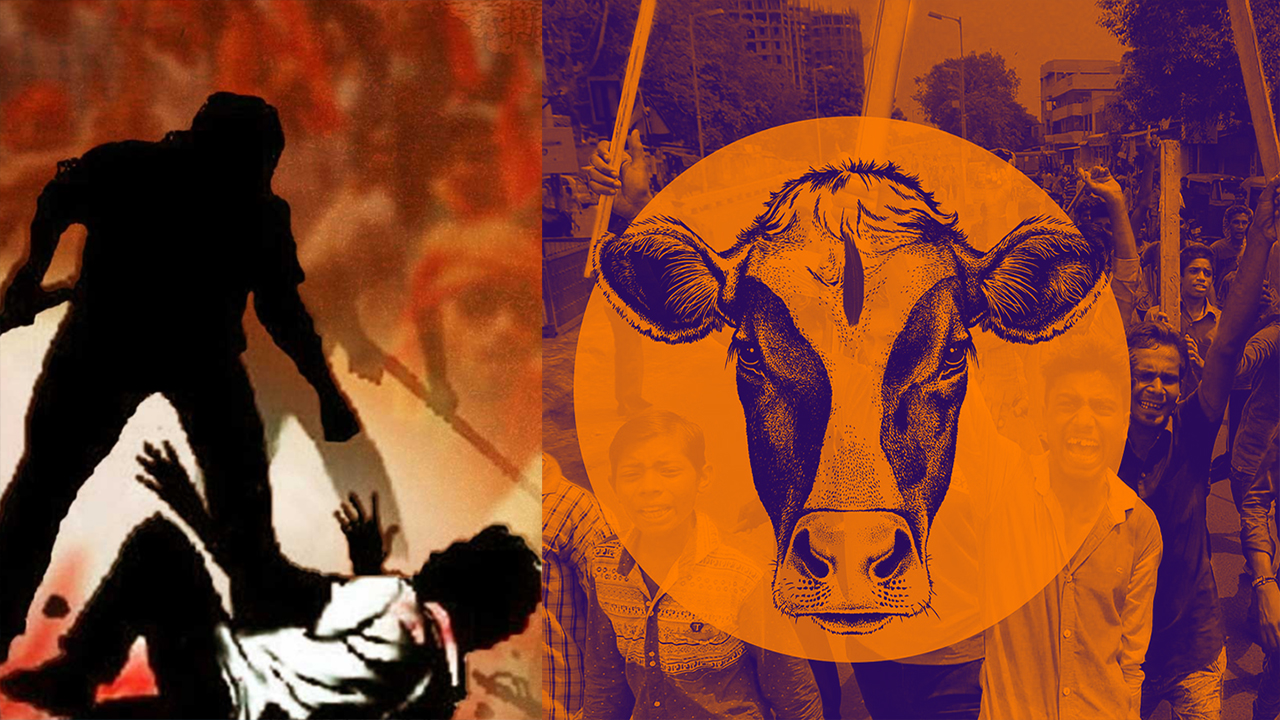Groundxero | 11 July, 2023
The Supreme Court on 10 July, 2023, has sought responses from the Centre and State Governments to file a detailed status report on what they have done so far to punish lynchings, mostly spurred by communal hate, in accordance with its judgment dated 17 July, 2018 in Tehseen Poonawala case. The highest court in the country has in 2018 denounced instances of lynching and mob violence against Muslims and Dalits as “horrendous acts of mobocracy” and urged the Parliament to draft legislation making lynching a distinct offence with a penalty. The court had observed “earnest action and concrete steps have to be taken to protect the citizens from the recurrent pattern of violence which cannot be allowed to become ‘the new normal”.
A Bench of Justices Sanjeev Khanna and Bela M. Trivedi while hearing the matter, in a batch of petitions filed by Tehseen Poonawalla and Tushar Gandhi and others pertaining to cow vigilantism and other incidents of lynching, directed the State Governments to file year-wise data, from 2018, regarding the complaints filed, FIRs registered and challans submitted in courts concerning incidents of mob violence and lynchings. The Court said the union Home Ministry could meet with the departments heads concerned of States and provide an updated status on measures taken by them to comply with the preventive remedial measures directed by the Supreme Court in its July 2018 judgement.
The judgment in 2018 had directed States to form Special Task Forces (STFs) to collect intelligence on likely incidents of hate speeches, mob violence and lynchings in districts. The judgment had made it clearly the duty of the Central and State Governments to take steps to curb and stop the dissemination of explosive messages, videos, etc., which have a “tendency to incite mob violence and lynching of any kind”. The court had directed that the police were duty-bound to register FIRs, arrest the accused, carry out effective investigation and file charge sheets in complaints of mob violence and lynchings.
During the hearing on 10 July, Advocate Shoeb Alam for the petitioners who include activist Tushar Gandhi said that there have been at least 10 such instances in the last one year and urged the court to direct the Centre and the State’s to file status reports. While, it is difficult to ascertain the exact number of vigilante-killings, as India’s laws do not make a distinction between cases of murder and lynchings, so cow-related lynching cases are not reflected in official crime statistics, but the lynching incidents reported only in the month of June this year reflects how normalised hate crime against Muslims have become in our society. On 26 June, 2023, the Maharashtra police reported that a man named Affan Abdul Ansari has been thrashed to death by a mob of Gau Rakshaks (Cow Vigilantes) in Nashik district on suspicion of smuggling beef. A week before, on 8 June, in another incident of lynching in the same district, a Muslim man named Lukman Suleman Ansari was beaten to death while transporting cattle in a vehicle by a mob affiliated with the a Hindutva outfit named Rashtriya Bajrang Dal (RBD). On 30 June 2023, a 55 year old Muslim truck driver named Muhammad Zahiruddin, transporting cattle-bones to a medicinal factory was beaten to death in Saran district of Bihar by cow-vigilantes, who suspected him of carrying beef.
The failure of the executive and the legislature coupled with the reluctance of the judiciary to urgently address the issue, an atmosphere of sustained hatred against Muslims orchestrated since 2014 makes killings by cow-vigilantes seem spontaneous and normal. Junaid Khan, Mohammad Akhlaq, Pehlu Khan, Zahid Rasool Bhat, Abu Hanifa, Riazuddin Ali, Zafar Hussain, Ayub Pandit, Naseem Quereshi, Affan Abdul Ansari, Mohammad Zahiruddin … The list can go on … A monstrous moral order is unfolding, irrigated by the blood of our fellow citizens and we are watching helplessly. The complicity of the ruling political class along with the administration and the silence of the opposition out of fear of losing majority Hindu votes, lynching of Muslims in particular on mere suspicion of eating or carrying beef has became the part of the new normal.
The only ray of hope arose when in 2018, the Supreme Court of India observed that:
Hate crimes as a product of intolerance, ideological dominance and prejudice ought not to be tolerated; lest it results in a reign of terror. Extra judicial elements and non-State actors cannot be allowed to take the place of law or the law enforcing agency. A fabricated identity with bigoted approach sans acceptance of plurality and diversity results in provocative sentiments and display of reactionary retributive attitude transforming itself into dehumanisation of human beings.
Despite the very stringent words of the highest court and a detailed time-bound framework, the union and the state governments have so far done little to implement the 2018 judgement by enacting a separate law and even the Supreme Court has failed to ensure strict compliance of its own ruling. In July 2019, a three-judge bench of the Supreme Court turned down a request for an urgent hearing of a contempt plea against states that had failed to comply with the Tehseen S. Poonawalla judgement guidelines. As of now only four states Manipur, West Bengal, Rajasthan and Jharkhand have enacted laws against mob lynching but they are still awaiting the president’s assent. This is ironical because the union Home Ministry has consistently pointed out in parliament that lynching are law and order problem and that ‘police’ and ‘public order’ are state subjects and that state governments are responsible for law enforcement; yet the Central government has kept state legislative Bills on lynching indefinitely pending.
We can only expect that this time the Supreme Court will strictly monitor the response of the union and State Governments, and press with urgency for its 2018 recommendations to be implemented by them.
Also read : ‘Hussains’ in India are Not Safe; USA can’t be their Saviour

